Keyham bomb compensation deal from WW2 revealed
- Published
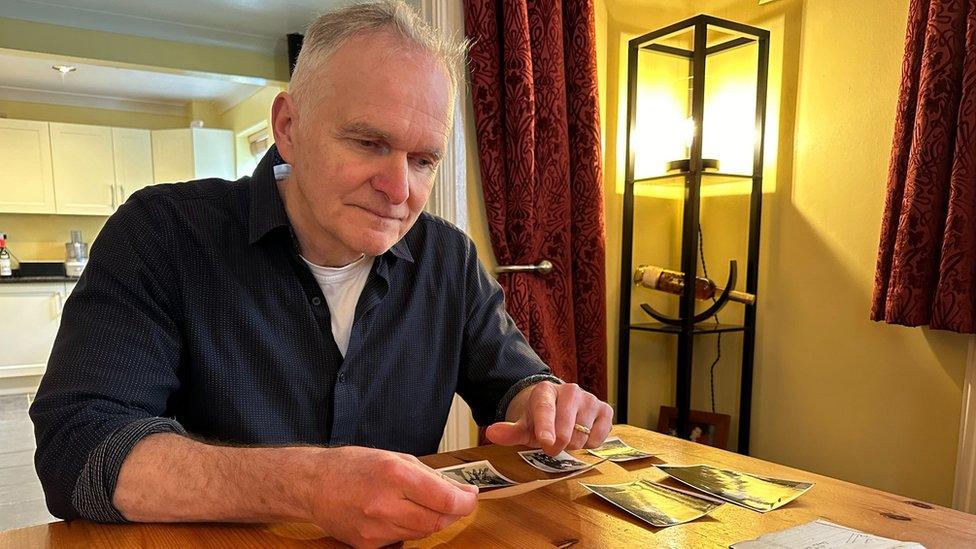
Andy Grigg said his family's home in St Michael Avenue, Keyham, was damaged by a bomb
The road in which an unexploded World War Two bomb was found last week was hit by another bomb in 1941, a man whose family lived there has revealed.
Andy Grigg, 61, said his family was paid £35 in compensation from the War Office after the family home in St Michael Avenue, Keyham, was bombed.
More than 10,000 people were evacuated from the Plymouth suburb on Friday as an unexploded WW2 bomb was removed.
It is thought that bomb fell a day after the one that hit the Grigg home.
Mr Grigg's grandparents George and Vera lived at the house in St Michael Avenue with Mr Grigg's father George, who was known as Arthur, during the conflict.
Mr Grigg said documents he had found showed the items his family claimed for after the bomb damaged their home.
The Broadhempston resident said a list he found mentions large items such as sections of the roof, conservatory and windows along with smaller details like clothes and towels damaged in the blast.
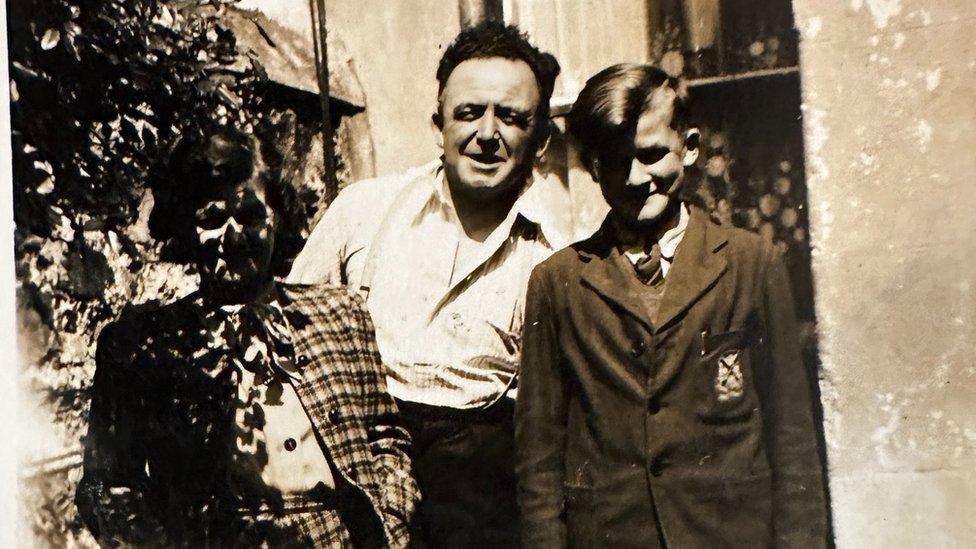
Andy Grigg's grandparents and his father lived in St Michael Avenue during World War Two
He said his family had claimed for £200 compensation, worth £8,308.83 today, according to the Bank of England's inflation calculator, external.
The sum they received back from the government following the raid would be worth £1,454.05 today.
Mr Grigg said the compensation claim made by his grandparents was dated 21 April, 1941.
Details from Plymouth's bombing map at The Box museum in the city showed a single bomb exploded on St Michael Avenue on that evening.
A day later, the map shows the same street was targeted by a raid which dropped several bombs in the area.
The map has a gap on St Michael Avenue during the bombing run, which archivists at The Box believe to be the bomb found in a garden last week.
'Covered in glass'
Mr Griggs said his father once told him about how he came close to death during the bombing raid.
"My father told me that he remembers the explosion," he said.
"He remembered waking up and lying down in bed as things were basically blowing up around him.
"Then he sat up and his bed was covered in glass so if he'd sat up a bit earlier, or maybe if the bomb that was found the other day had gone off, his story and my story could have been remarkably different."
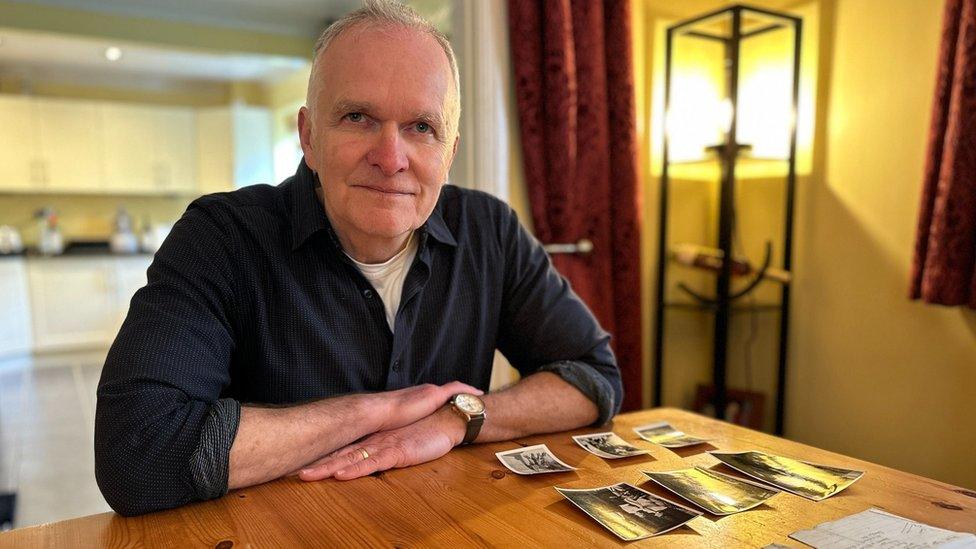
Andy Grigg said his father found broken glass all over his bed after the bomb blast in April 1941
Following last week's events, people currently living in St Michael Avenue have been holding meetings with Ministry of Defence (MoD) officials to assess the damage caused.
The evacuation operation was described by the MoD as one of the largest in the UK during peacetime.
Several residents on the road have said the whole situation had been an "emotional rollercoaster".

Follow BBC Devon on X (formerly Twitter), external, Facebook, external and Instagram, external. Send your story ideas to spotlight@bbc.co.uk, external.
Related topics
- Published26 February 2024
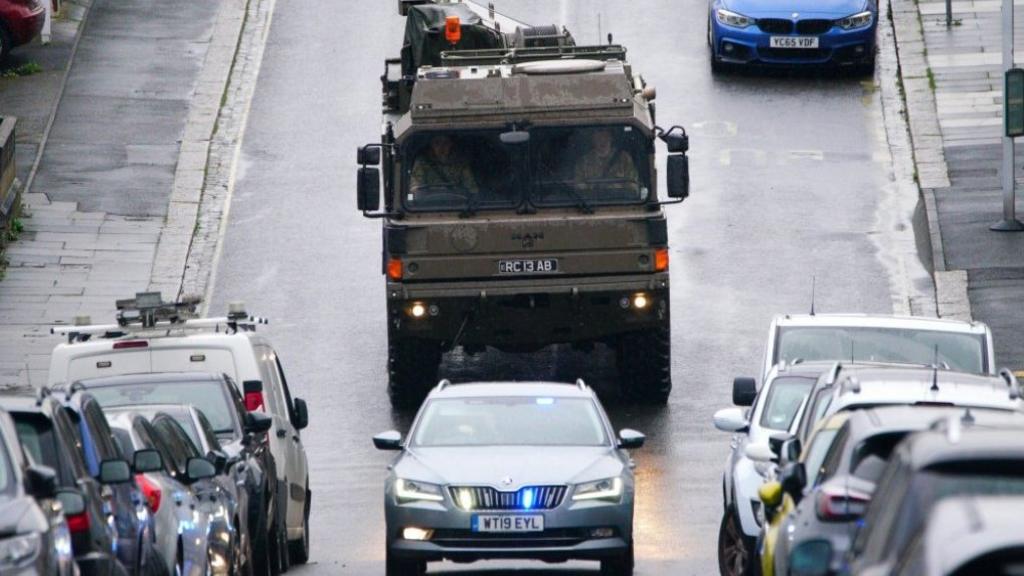
- Published24 February 2024
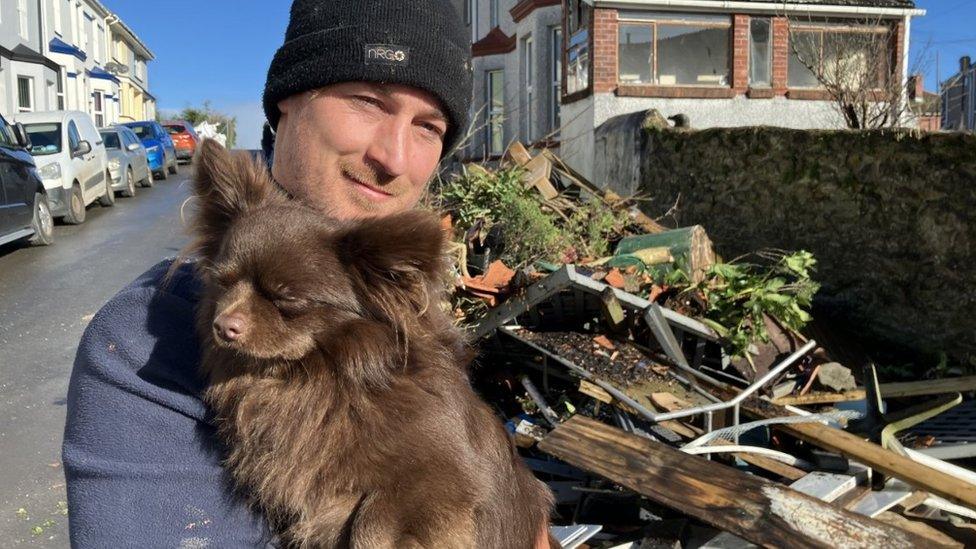
- Published24 February 2024
